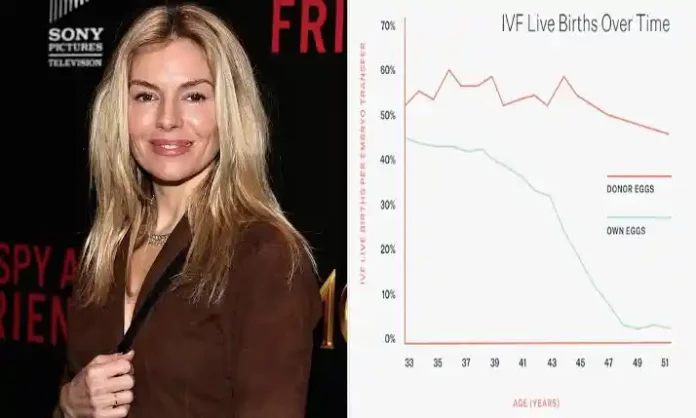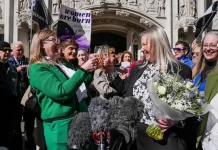Women who freeze their eggs over the age of 40 are highly unlikely to end up with a baby, a UK study suggests.
Study looked at 373 women who froze their eggs at huge clinic in their forties and suggests the odds of success are tiny for such women, despite women in Britain undertaking the fashionable procedure up until the age of 49.
It is believed that women today froze their eggs around age 40 to avoid the ‘existential threat’ of her ticking biological clock, like the Hollywood actress, Sienna Miller.

A research team led by Imperial College London looked at all 373 women who froze their eggs over a decade at one of the largest private clinics in London, the Centre for Reproductive and Genetic Health (CRGH).
Around one in 10 women returned to thaw their eggs and attempted to have a baby through IVF.
Among those who were in either their early or late thirties when they froze their eggs, around a third were able to have a baby using the eggs.
But zero per cent of women who were aged 40 or older at the time of egg-freezing ended up with a baby when those who froze their eggs between 2008 and 2018 were followed up.
Although two women fell pregnant in this period after freezing their eggs over the age of 40, they suffered miscarriages, which are far more common in older women.

The study from the London clinic is relatively small because, despite the popularity of egg freezing, few women go back to use their eggs – for reasons such as becoming pregnant naturally or not meeting the right person to start a family.
But the new results echo similar research from two UK clinics, published in 2019, which looked at 129 women who froze their eggs over a decade and sought to use them to start a family.
Dr Lorraine Kasaven, first author of the study from Imperial College London, said: ‘It is important to counsel women aged 40 or above having egg freezing of the realistic expectation of poor outcomes, such as low live birth rates, as this study shows.
The new study concludes that women who freeze their eggs over the age of 40 are ‘unlikely’ to succeed when they try to have a baby.












